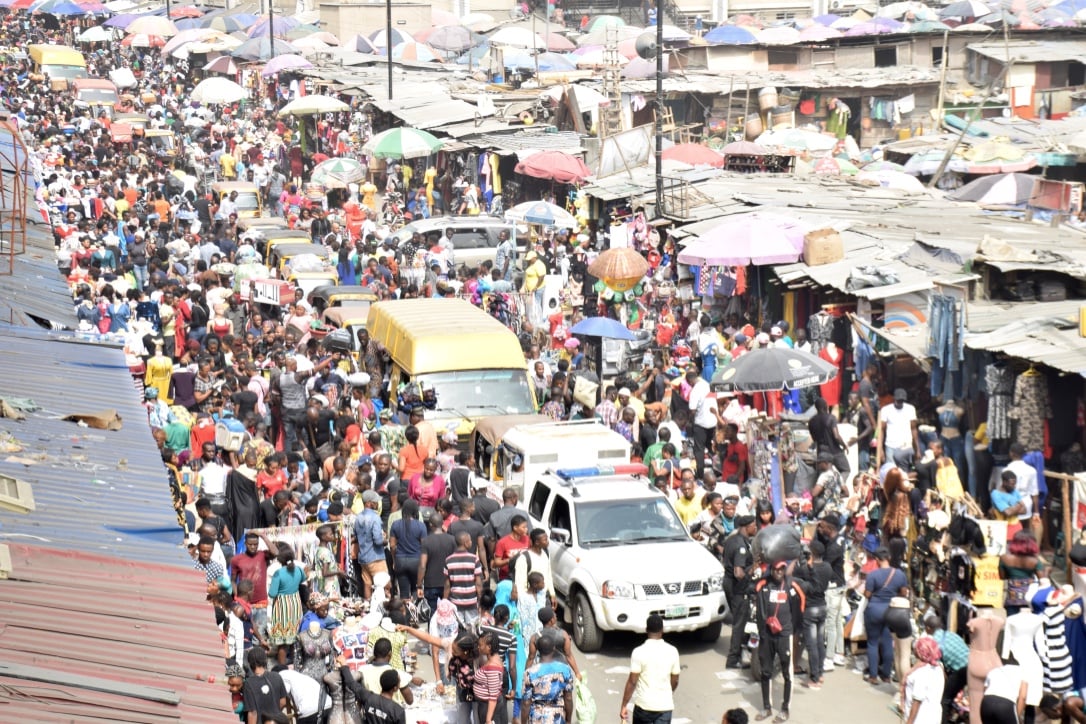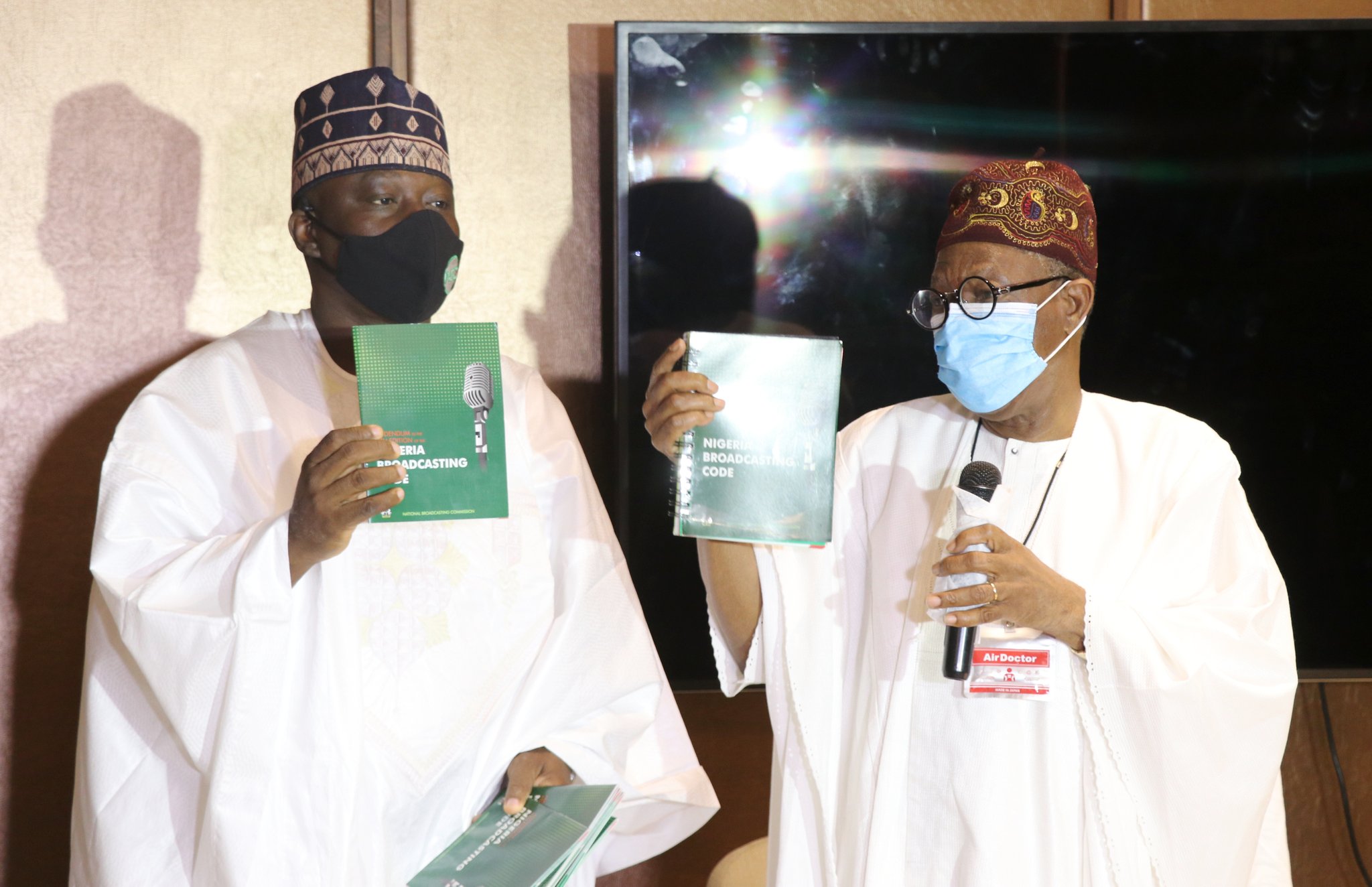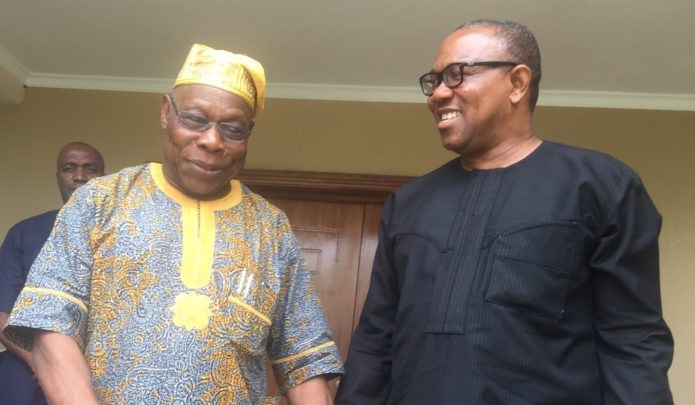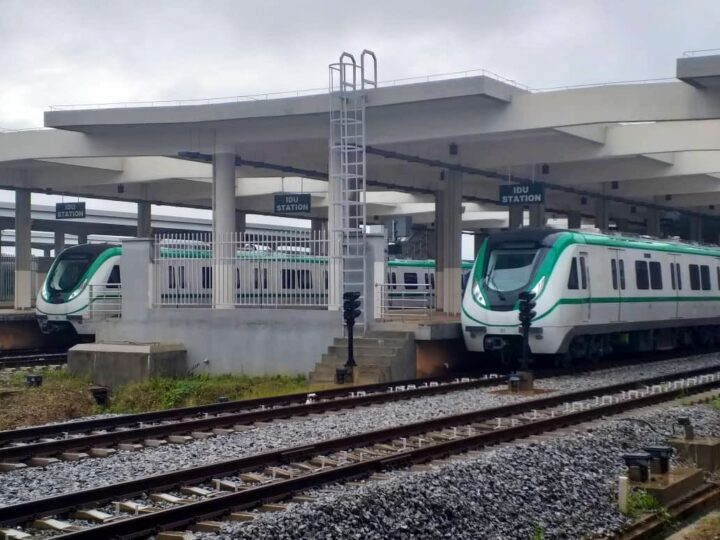God knows I tried. For years I wrote and laboured, even got into politics to see how I could directly help, since joining the big two was an impossible or untenable option. I put out all my ideas on our economic situation, from how I believe we could attain growth, to how to manage inflation, and how to urgently manage the Naira value. I’m afraid the situation is no longer redeemable. And Nigeria hangs at the edge of a fiscal cliff, which may likely lead to a massive economic decline: a meltdown.
I worry at how no rigorous economic discussion had gone on in this country in the past 13 odd years, with the last seven being the worst of times. What we passed off as economic discourse is full of deception. So-called “respected economists” and the impostors who often occupied their positions, came to the table bearing biases and agendas. Some came to work for the banks, and some for even larger, more sinister principals.
Now, we face the likelihood of a meltdown. Inflation promises to run away. I don’t see what anyone is doing to prevent this, or any discussion as to what people should do if this happens. Should we just live through it, as our people become food hungry by the millions? Is there anyone thinking about food sufficiency if the entire world goes into a crisis, and everyone clams up and fends for their own people? I had been an advocate of double-digit growth. I still am. But we didn’t seize our chances when we could. Today, it is about sheer survival. Why do we roil around in perennial regret?
Fiscal cliff
Advertisement
This means that soon enough, the Nigerian government will be unable to fulfil its obligations. I fear for those who are attempting to go into government today, whether in elective or appointive posts. Nigeria’s statistical figures recently showed that we now spend over 100% of our revenue on servicing debts. So, where will we find money to fulfil other obligations? And crude oil has fully become a liability, as our proceeds from crude get cancelled out by our import of petrol, the federal government is stuck for ways to fund itself. The national oil company, NNPC Limited, recently attained a limited liability status, saying that it shall no longer contribute to federal allocations on a monthly basis. The point is really that there is nothing to contribute. But will the company be run as a proper limited liability or will it continue along its wasteful ways? Where are the necessary staff rationalization and salary cuts that will be the next action of a limited liability company? Are states and other stakeholders still spellbound? Or will they wake up sometime in the near future, and discover they’ve been shortchanged?
The federal government under Buhari has also shown no capacity, and the fiscal side, led by the ministry of finance, has been shy from taking the needed firm action that may save us from this fiscal cliffhanger. They have been timid in pushing through luxury taxes, excise duties, capital gains taxes, road taxes and other forms of revenue that are progressive and could generate the needed funds. They like to speak about how we have a revenue problem – and yes, we do – but are short on moving on it because of political reasons. Now, the chicken has come home to roost.
Naira gap
Advertisement
On the monetary side, the naira value is becoming uncontrollable. The Central Bank of Nigeria (CBN) is left to carry the can. A gap of at least N230 has emerged between the official rate and the more-accessible ‘parallel market’ rate. This is one of our worst nightmares – perhaps simply the worst – because the exchange rate is tied to inflation and perception. It is a phenomenon that feeds on itself and leads to a spiral for the following reasons:
- Nigeria is still largely an import economy. We produce nothing apart from agricultural items which we sell raw. Even serious farming now depends on imported technology. So, we also import inflation from abroad as inflation is currently a global phenomenon as nations struggle with the fallouts of COVID-19 intervention spending.
- The perception of a weaker currency only leads to a weaker currency. A country’s currency is her representation. I keep quoting Margaret Thatcher and Josef Stalin: “To destroy a country, first debauch its currency”. This could lead to a spiralling down that cannot be explained by actions and inactions of government, just the people losing confidence in their currency and indeed, in themselves.
- There has to be a backstop somewhere; Nigerians are not known to be particularly patriotic, and we are stuck with an uninspiring government. Some ‘enlightened’ folks will tell us – like Osinbajo – to float our currency. We know that we produce nothing, so on what basis will the naira be floated? If we do, we will lose the currency. If, as Alhaji Atiku says, he wants the naira’s official rate to be equated with the parallel market rate, be assured that the moment the official rate becomes N650, the parallel market will shift to N850. In time, N850 becomes the reference rate and then the parallel rate moves to N1,000, with the official rate trying to catch up. In time we will be at N5,000 or N50,000, not only because we produce nothing, but because of speculation and our innate wiring of not having confidence in our country or currency.
- Nigeria is a country where everyone plays smart. Almost everyone with N1 million savings has been converting to dollars because it is easy to do. This is one peculiarity that sets us apart. Either that we do not believe we need a country, or we don’t know what we are doing to our country and don’t care. I have laboured in the past to educate Nigerians and even her monetary authority on the power of perception in monetary management. For as long as we take a negative position about our money (law of self-fulfilling prophecy), for that long will our currency continue to be debauched. I think we have crossed the Rubicon and wasted the window whereby we could apply available strategies to stave off a run on our currency. We are now on the superhighway, from what we’ve seen in the last few days. And for me, it is very painful.
- Those who are stashing away their savings in dollars have a point. But a policy may come one day in the future, which forces them to convert to naira or else. This will make the government unpopular, but a smart government could pitch such bourgeoisie against the hoi polloi. For sure, we may not continue with this sickening dollarisation of the economy ad infinitum. Nigeria is one of the most dollarised nations in the world. There must be a way out. When your dollar savings get significant, it attracts attention and gets reported to regulators. And it is increasingly more difficult for Nigerians to open accounts anywhere in the world or successfully launder money across the world the way they used to. COVID-19 came with some groundbreaking changes in human interaction. One of them is the ‘war against cash’. Go to the United Kingdom today and you stand out with your cash. No one uses it anymore. So, try to pay in 5,000 pounds cash across the counter and be sure that Scotland Yard is seeing your every move. And where you keep only naira, you are cooked as inflation and devaluation erode your worth. These are serious times.
Spiraling inflation
Inflation stands at 18.6% and the Central Bank’s monetary policy committee (MPC) has raised the benchmark rate by 100 basis points (1%) in the last two consecutive meetings. As much as rates are being raised – which should theoretically slow down inflation, the opposite has been the case. The higher the monetary policy rate (MPR), the higher the inflation. This could be traced back to the origin of inflation.
My view is that our inflation is multi-dimensional. Some of our inflation comes from interventions for COVID-19 which meant that people were paid much money for doing nothing. This is what is happening in the rest of the world. Free money inflation. Also, part of our inflation comes from importing inflation from all parts of the world. Lastly, producers, retailers and importers have to reflect survival costs by marking up the cost to consumers since they now get their supplies at higher rates.
Advertisement
Higher MPRs mean that banks raise their lending and to a lesser extent, deposit rates. When this happens, productivity reduces as investors park their monies in banks to earn high-interest rates. Companies also stop employing or expanding their capacities. Some lay off or even close down entirely. Higher MPR should be bad for an economy like ours because it slows economic growth. And we direly need growth. In our instance though, it is a double tragedy. Not only has it not led to a slowdown in growth, but it may lead to the new lending units like Fintechs increasing their already prohibitive interest rates on very small borrowers who are presently groaning under the burden of predatory borrowing with rates already as high as 120% per annum (10% flat monthly)
And some pundits say Nigeria should summarily deregulate the petrol sector. In fact, that is mouthed off as the singular solution to our problems. No chance! Even the government knows that it will be the recipe for collapse – of the government and perhaps the country. If the price of petrol should hit say N900 per litre as a result of subsidy removal today, inflation will hit 300% easily, and that inflation will continue to feed itself into a spiral. Companies will close and turn people out. And there will be riots on the streets – this time worse than #EndSARS. The issue is that such social breakdown may continue until interlopers seize control as they did under #EndSARS, but this time much worse. Those into regime change for the heck of it are around the corner. Those who are interested in separatism and anarchy will also show up for the party. I believe though, that we can embark on gradual deregulation, and we could also combine that with petrol taxes – as is done everywhere in the world. That way, we may exit the quagmire earlier. A N50 petrol tax per litre will go a long way if well-utilized. This will require legislation too.
Low productivity
Nigeria is also stuck in a perpetual trap of low productivity. The truth is that all of us are not producing enough. I never get tired of analysing our exports against our imports. This situation has been on for decades now. In fact, it was a poisoned chalice handed to us by departing colonialists. We are primary product producers — mostly crops — till today. We are locked into a situation where we only grow crops and sell them yearly. Yet we need the most sophisticated imports from the world. And we are indeed bingeing on such. Abroad, nobody buys a phone in cash. But here, we buy the most expensive phones, cars and other technologies, cash down without worrying about what it is we are producing that justifies that since we live in the same globalized world as everyone else. If the producers are buying everything on credit, who are we to be buying in cash? And why are we not thinking of being modest about it? People buy houses on 30-year mortgages abroad, but we buy or build in cash over here. How do we help our productivity crises? How do we ensure we deepen the economic complexity of the goods and services we sell to the rest of the world. We say we have a dollar scarcity. I think we have productivity, innovation and commonsense scarcity instead. If this does not change, this economy can never get into a positive balance of payment positive territory in real terms, even in 500 years.
Advertisement
And in order to force us to be productive and innovative, we need to close this economy down in a clever manner. The biggest disservice we’ve done to ourselves is devaluing our currency while at the same time opening ourselves up to foreign imports. Devaluation means that foreign imports are far more expensive. This means that everything must be done to help your people replace what they cannot now afford that comes from abroad. If you don’t achieve that, you open your people to poverty, hunger and malnutrition on an industrial scale. The same thing happened when Nigeria deregulated the petrol sector in 2016 by increasing fuel price from N87 to N145. People accepted because this was Buhari. But the next thing that happened was that this N145 which was about 80 cents when the naira was N199=$1, soon became like 40 cents after we devalued to N360. The subsidy gap opened again and was rechristened ‘under recovery’. Devaluation and deregulation are two mutually exclusive policies for countries that want to stay out of trouble. So also, are devaluation and an open economy.
Debt crisis – AMCON, etc
Advertisement
Our ministers of finance like to say what Nigeria has is a revenue crisis. For one, they do absolutely nothing about that revenue crisis. They are usually politically emasculated. Rather, we hear of import duty waivers given to very powerful people in society. We have a debt, revenue and expenditure problem, in my view. Our debt crisis manifests in our fiscal cliff as we now spend all of our revenue servicing debts. This past quarter, we spent N1.94 trillion servicing debts, while our revenue was less than that figure by N300 billion, at N1.63 trillion. This is ridiculous. And I believe we haven’t started paying the principals of our debt, we are only dealing with interests for now. Kemi Adeosun was big on debt, and perhaps because of her patronage, she recently got tax-exempt status from the US government to raise funds for her NGO.
Our national debt stock is about N41 trillion, or close to $100 billion. This is about a quarter of our GDP. But when we add government borrowing from people’s pensions, the borrowing that was used in intervening in the bad bank, AMCON, and the federal government’s exposure to the Central Bank of Nigeria, perhaps we are looking at least another N35 trillion to N40 trillion, taking our debt to GDP ratio to over 50%. Of course, debt to GDP is a meaningless index. What about debt to revenue? That is where you find our economy is legless.
Advertisement
You ask yourself, why has the government played deaf and dumb since 2015 at least? When people cried and shouted and complained about the choices our federal and state governments made – their fleets of luxury cars, their frequent luxury travels, and crazy emoluments – this government behaved like they had no ears. Is it not wickedness to sleep through this and then wake us up to this nightmare? This is the expenditure problem I speak about. It has been sheer insanity since we returned to democracy, but more so in these past few years.
What may come
Advertisement
We potentially sit at the precipice. This time, it is potential for real and all we need is a trigger or a rash, not-well-thought-through action and boom! We may see the naira devalue to N1,000 or less. We may also see inflation spiral to over three-digit numbers. We may not feel much impact apart from moderate addition to inflation if, for instance, interest rate levels climb to the 20s or 30 percentage points. Our biggest challenge may be spiralling inflation as a result of price adjustments, price gouging, loss of confidence in government, devaluation, and reaction to a new global economic, financial and/or currency crisis. It could easily be bedlam on Nigeria’s streets as people’s wealth gets totally eroded.
We need great economic thinking by patriots now more than we ever did. Truth. No jokes anymore. We have winged as many bullets as we may likely be able to. We may potentially be staring at a Wiemar Germany scenario, with crimes spiking on our streets as we need a wheelbarrow load of money to buy bread. We may need our traditional African social capital to kick in at short notice and hold up for us. I think we are in the epoch where the world totally hands off Nigeria and sees what we can do with ourselves, especially now that every country is nursing their own wounds.
What to do
Claw-backs through an elite consensus. We have to sell the idea that we all must save our country. We need highly communicative leadership that will:
- Mobilise as many people as possible behind the cause of saving our country
- Command the respect to get an elite consensus going
- Open our people’s eyes to the goodness of our country and the need to save her by all and sundry
- Show that the ways of the past are permanently over, and that government can be trusted with people’s taxes.
- Institute some progressive taxes, like luxury taxes, CGT, vehicle taxes, even the petroleum tax and so on, that can attempt income redistribution. We can begin to double revenue with enforcement as well. There is fire on the mountain indeed
- Show that government is no longer business as usual
- Cause a period of sacrifice – zero pay, zero emolument – for a year or two on behalf of government functionaries. For the USA to exit the Great Depression, they had to lock down the country and ban the production and purchase of cars for two years (April 1942 to December 1944). It was wartime and they focused their car manufacturers on World War 2 efforts. We have always been at war here too. So, why not?
- Focus our people on local production. All our needs could also be seen as opportunities for business by our people. Foreigners are welcome. It takes time to set up companies though, but the earlier we get it into our heads that we have been goofing about by thinking we can play the international trade game, the better. We simply have nothing to sell. We are a basket case. Every Nigerian has contributed to this state but more those in government and those who have milked the system to comfort. We can decide to go after those we think are comfortable – which will involve some innocents – or we could roll up and sleeves and produce. Our choice.
- Launch a zero-waste policy whereby the minds of Nigerians are attuned to the presence of value in many of our endeavours. Cottage industries should be encouraged to ensure we minimise and eradicate post-harvest losses of our main food crops. We should push towards utilizing 80% of our arable land, from the present 35%. We should also strive hard to add value to these primary crops if we intend to get some dollars back from the rest of the world.
- Show the required madness in securing this blessed country, whatever it takes. Mock me or not, even the 50 million youths to be recruited into the army (well not necessarily the army, and not necessarily 50 million). What I heard was the need to take away from the source of recruitment of bandits and terrorists, and the need for Nigerian youths to take their country back by forming a human wall against those who terrorize and horrify and traumatize us on an hourly basis. I see very little wiggle room around the need for us to secure our food (agbado, cassava, ewa etc) so that our youths could fill up the security services – military, paramilitary, police, intelligence services, and patriotically defend their country while we also begin to manufacture our own essentials and get off this despair we have found ourselves. Our leaders today appear helpless, clueless, hopeless and pitiable, and so do the rest of us. Yet, without security, we are all dead. Forget about investment and business. God help us.
It is not enough to point fingers. Pick up a mirror and look at one of the culprits. Only irresponsible people will think that this is another opportunity to destroy the little infrastructure that Nigeria owns. Protests are good. But productivity and a reordering of our individual priorities are even better. We all should declare a moratorium and focus on the very bare essentials for at least two years. And those who have wantonly stolen what was not even enough may be hung, drawn and quartered.
Views expressed by contributors are strictly personal and not of TheCable.
Add a comment







